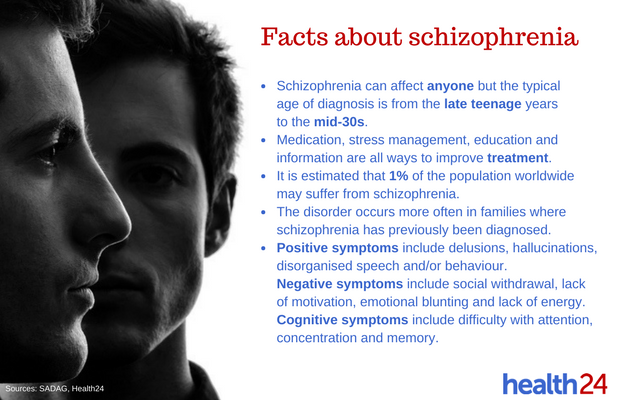
"You're rubbish. You're rubbish. You're a waste of space." The computer avatar pulls no punches as it lays into the young woman, a schizophrenia sufferer, facing the screen.
"Can you go away, please?" the woman asks, timidly at first. But after some time, emboldened, she asserts: "I am not going to listen to you anymore!"
The exchange is part of an innovative treatment developed by specialists in London and Manchester for people with schizophrenia who "hear voices".
And it seems to work, the team reported.
Avatar therapy seems to work
Of 75 people who underwent "avatar therapy" in a three-month trial, seven "completely stopped hearing their voices", according to the authors of a study published in The Lancet Psychiatry.
In the group overall there were "really large and significant decreases in the amount of distress people felt in relation to their voices, the number of times a day they heard the voices, and the extent to which they felt overpowered by the voice," said lead author Tom Craig of King's College London.
Living with 'voices'
In a comparison group of 75 patients who received counselling instead of avatar therapy, two said their hallucinations had stopped, the team found.
All the participants continued taking their medication throughout the trial.
About two thirds of schizophrenia sufferers live with "voices" – imaginary people who "speak" to them, typically to insult and threaten. It is a "horrible and distressing" condition, Craig said.
Most experience the voice as dominant, even omnipotent, and feel inferior and powerless in comparison.
For most, drugs reduce the symptoms but about one in four continue hearing voices, said the study.

More in control
The new treatment helps schizophrenia sufferers confront these disembodied scolds, and learn to dominate them.
All 150 participants had experienced persistent and distressing hallucinations for between one to 20 years, despite taking antipsychotic medication.
On average, they lived with three or four distinct voices each.
What the therapy looks like
In the first step, a therapist would help the patient create a digital computer simulation, or avatar, of the main voice plaguing them – mimicking what it says, the pitch and tone of its speech, and recreating what they imagined its face would look like.
Over six 50-minute sessions, the patient then confronts their tormentor, materialised on screen, guided by their therapist.
The therapist, in a different room, uses a microphone to address the patient over the computer speakers, as well as voicing the avatar's on-screen tirade.
In a video demonstrating the method, Craig counsels a woman as she talks to her avatar.
As she asks: "Can you go away, please?" Craig's voice advises: "That's good Lauren, that's good, but can you try and make it a bit stronger for me? Sit up, look at him, and tell him to go away, OK?"
As the therapy advances and the patient learns to become more assertive, the avatar starts conceding ground, and eventually acknowledges the person's strong qualities.
"The whole experience changes from something that's very frightening to something that's much more in the person's control," Craig explained.
Important new approach
Schizophrenia affects more than 20 million people worldwide, according to the World Health Organization. Many are unable to work or maintain healthy relationships.
"The real advance that comes from avatar therapy is the improvement in treatment," said Craig.
"Antipsychotic medication is helpful to a point, but many people who have been on antipsychotic medicine for years and years still have their voices," he explained.
"I think it's a real advance, and I think there will come a time when this will be part of routine provision of psychological treatments for voice-hearers in psychosis."
Experts commenting on the study said it showed real promise but further trials are needed to confirm the efficacy of the treatment and determine which patients it may be used for.
If proven, "it will add an important new approach to care," said Robin Murray of the King's College London's Institute of Psychiatry.
Where to get help
If you need a referral to a psychologist, psychiatrist or support group, you can call The South African Depression and Anxiety Group (SADAG) on 011 234 4837 or 0800 20 50 26 and speak to a trained counsellor who can assist you further.
Image credit: iStock




 Publications
Publications
 Partners
Partners














